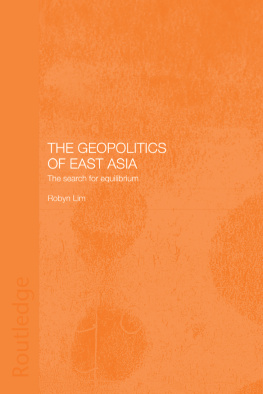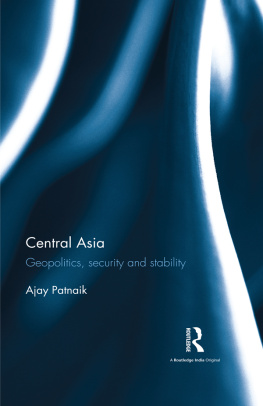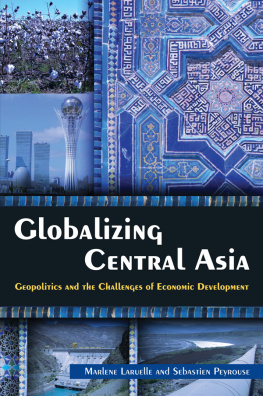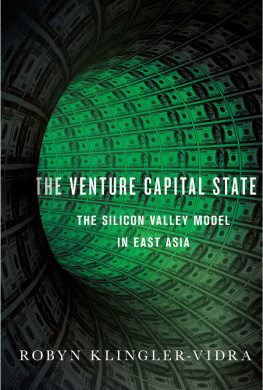The Geopolitics of East Asia
Since the Cold War ended, East Asia has become the global focus of unresolved strategic tensions among the great powers. These tensions focus on the Korean peninsula, the Taiwan Strait and the South China Sea, and have an important maritime dimension. This book presents a comprehensive overview of the geopolitics of the region. It focuses in particular on the way geographic and historical forces continue to play a key role in shaping international relations here. It considers the role of both regional and international powers, and assesses the risks of war in the region.
Robyn Lim is Professor of International Relations at Nanzan University, Nagoya, Japan. Previous affiliations include the University of New South Wales in Sydney and as Australian Studies Professor, University of Tokyo. From 1988 to 1994 she worked in the Office of National Assessments, Australia's main foreign intelligence assessment agency. Her main research interest is East Asian security.
The Geopolitics of
East Asia
The search for equilibrium
Robyn Lim
First published in hardback 2003
by Routledge
first published in paperback 2005 by Routledge
2 Park Square, Milton Park, Abingdon, Oxon, OX14 4RN
Simultaneously published in the USA and Canada
by Routledge
270 Madison Ave, New York, NY 10016
Routledge is an imprint of the Taylor & Francis Group
First published in paperback in 2005
Transferred to Digital Printing 2008
2003, 2005 Robyn Lim
Typeset in Times by Routledge
All rights reserved. No part of this book may be reprinted or reproduced or utilized in any form or by any electronic, mechanical, or other means, now known or hereafter invented, including photocopying and recording, or in any information storage or retrieval system, without permission in writing from the publishers.
British Library Cataloguing in Publication Data
A catalogue record for this book is available from the British Library
Library of Congress Cataloging-in-Publication Division
Lim, Robyn, 1947
The geopolitics of East Asia: search for equilibrium/Robyn Lim.
p.cm.
Includes bibliographical references and index.
ISBN 0415360307 (pbk)
ISBN 015297176 (hbk)
1. East Asia--Politics and government--20th centruy. 2. GeopoliticsEast Asia. I Title.
DS518.1.L49 2003
950.4--dc21
2002036964
For my parents, Roy and Majory Abell
Contents
Acknowledgements
This book is a consequence of a suggestion by the former deputy director general of the Office of National Assessments in Canberra, A.D. Tim McLennan. His constant support and encouragement was invaluable. Another large debt of gratitude is owed to Professor James Auer (USN ret.), director of the Centre for U.S. Japan Studies and Cooperation at Vanderbilt University's Institute for Public Policy Studies. Jim Auer opened many doors for me, and introduced me to a flotilla of his American and Japanese navy friends. I am also especially grateful for the encouragement of the veteran Australian journalist Denis Warner, who linked me up with his old friend Sol Sanders (Ye Olde Crabbe). Thanks are also due to Tim Huxley, Senior Fellow for Asia Pacific Security at the Institute of Strategic and International Studies in London, for his encouragement from the outset.
I am also indebted to friends and colleagues who read parts of the text. These include Thomas Bartlett, Edward Dreyer, June Teufel Dreyer, Bruce Ellemann, Edward Griffin, Ingolf Kiesow, Hisahiko Okazaki, Richard Parker, David Potter, Sueo Sudo, Stanley Weeks, Martin Weinstein and Kenneth Weisbrode.
Special thanks are also due to my spouse Lim Soo Khiam (Simon) for all kinds of support, especially with logistics. I am grateful to Simon Nevitt for the maps.
I also gratefully acknowledge Nanzan University's financial support in the form of a Pache 1-A research grant for the years 2000 to 2002.
Introduction
More than a decade ago, the winning of the Cold War saw East Asia become the global focus of unresolved great-power strategic tension. That was because the collapse of Soviet power saw equilibrium restored to the western end of the Eurasian landmass, but not to its eastern edge. In Europe, strategic security is now settled in the broad. When a German-speaking Russian president can address the parliament of a reunified Germany in Berlin, as Vladimir Putin did in mid-2002, we can be confident that the historic contest between Russia and Germany for hegemony over Eurasia is truly past.
But in East Asia, the end of the Cold War saw no such resolution of great-power strategic tension. There the East Asian quadrilateral the United States, China, Japan and Russia continues, albeit on the basis of new configurations of strategic interest. The quadrilateral, which never really disappeared under the overlay of the Cold War, resurfaced with a vengeance in 1991. Since the end of the Cold War, strategic tensions in East Asia have arisen solely as a consequence of fluctuations in strategic interests within the quadrilateral they are no longer mostly reflections of strategic tensions that have their roots in collisions of great-power interest in Europe, as they had been since the quadrilateral assembled in 1905.
In East Asia, although great-power war is far from inevitable, it remains thinkable not only between the United States and China, but over the longer term between China and Japan, the two great powers of East Asia that have never previously been strong at the same time. As America makes war in Afghanistan, in response to the terrorist attacks on the United States in September 2001, it cannot afford to neglect the problems of East Asian security. That's particular so because the region is now the focus of global economic growth, fuelled in large part by the burgeoning Chinese economy.
Regional tensions focus on the Korean peninsula, the Taiwan Strait and the East and South China Seas a half-island, a strait and two semienclosed seas. That all points to the maritime dimension of the region's security. Maritime tensions are bound to engage the strategic interest of the United States, because of the maritime basis of America's own security. The theme of this book is how East Asia's strategic geography bears on the interests of the United States as the dominant maritime power.
Since 1905, America's essential strategic interest in East Asia has been to see established a balance of power on the opposite shore of the vast Pacific Ocean. Throughout all the gyrations of the East Asian quadrilateral, the United States has pursued this goal with remarkable tenacity. It was the pursuit of equilibrium that led President Theodore Roosevelt to broker the peace at Portsmouth in 1905, after Russia and Japan had fought each other to exhaustion. Subsequently, America's interest in maintaining a balance of power in East Asia led into all its wars there the war against Japan, the Korean war and the Vietnam war.
The essential American interest does not lie in any particular configuration of strategic interest within the quadrilateral. Rather, America's overriding concern is with the balance of power. The East Asian quadrilateral has fluctuated constantly over time, and is likely to continue to do so. Since 1991, the most serious tensions have been between the United States and China. But this was not the case in the past, and might not always be so in future.










